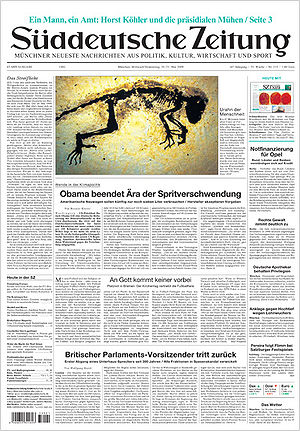You mention several times that under the ESM you wouldn’t be able to “invest in growth”. I don’t really understand what you mean by this. What is the precise ESM policy that prevents this? I thought it was mainly a severe constraint on the budget, with very strict rules about the size of deficit spending. (Just like the IMF would).
To deal with this bit first: The EMS – or more correctly the Fiscal Compact we must join to enter it – will compel us to cut government spending at nearly twice the pace we’re already slashing away. Even leaving the immediate human cost aside for a moment, this will have the effect of further shrinking the economy, further reducing the tax take… A vicious cycle looms.
The way to break that cycle would be to borrow and spend as soon as possible to stimulate growth; classical Keynesianism. The IMF – or of course commercial lenders – would have no ideological objection. The Fiscal Compact however requires that, with some leeway for cyclical fluctuation only, governments borrow no more than 0.5% more than income. In other words it bans Keynesianism in perpetuity, for no better reason apparently than German mistrust of it (as I discussed here).
Aside that, you provide a very clear analysis of all the options. It’s sadly clear that all the options, including your preferred one, have major downsides. There’s no silver bullet for the economic problems of Ireland. Or Europe, for that matter.
Especially, because it’s not just conjuncture and aftermath of the mega-losses in the housing and financial markets. A big problem is that while all this is going on, all European countries are concurrently facing the huge (huge!) increases required to simply keep up expenditures in healthcare and retirement funding.
That’s where the biggest pain of ‘austerity’ is felt, but I always find it a tough topic. On the one hand, it’s easy to depict those cutting in the healthcare and retirement budgets as “robbing the sick and elderly”. On the other, it’s a reality that these (often overlapping) groups are experiencing skyrocketing costs.
If any of the “nuclear” options, such as leaving the Euro are chosen, these people will _still_ be among the hardest hit. Also, is it fair to ask younger generations to display solidarity for the elderly, but not ask it all of the elderly?
Well I’m seeing it quite differently. The sick and elderly are my highest priority, and I wouldn’t be suggesting these nuclear options unless I thought they would be better for the vulnerable in society than the merciless constraints of the Fiscal Compact.
Our economy is healthy by the measure that matters most – balance of payments. We ought to be able to raise more money to prevent the sick and elderly getting the brunt of this. To a great extent, it’s Euro membership that is tying our hands. A major factor scaring lenders off now is the possibility that the Euro could collapse, or that we’d crash out of it. If we get that over with, we suddenly become a far more attractive risk. (And of course, our balance of payments gets even better.) It would be hugely disruptive and scary, but very probably preferable to slow economic constriction.
I don’t know what you really mean by solidarity on the part of the elderly though. We’ve already raised the retirement age, I’m not sure what more they can do. Unless you’re subtly suggesting we try legalizing assisted suicide here…
I answered this one yesterday, but I include that here, with a little expansion, for completeness. (no known relation) from the UK asks:
Would it not be best for Ireland to share the currency of Northern Ireland, Scotland, Wales and England, i.e, the pound / punt? Ireland’s economy is so tied up to that of its near neighbours that the euro is an aberration.
That would be a hugely retrograde step. The old Irish pound was pegged to the UK pound from independence until the mid-70s – not exactly an era of sparkling economic performance. A currency union tended to steer business towards or through the UK, only exacerbating the geographic disadvantage of having a larger country effectively sitting between us and the wider world.
So the general thrust of policy for decades has been to untie the economy from our nearest neighbours! Mainly, by finding new trading partners. (And whatever about its downsides, the Euro has definitely been a help in this.) Decades of separate development have made the UK’s importance for trade much smaller than you may think.
You will see shops in Ireland full of UK brands (and indeed, high streets full of UK chains); we certainly do still import a huge amount of retail goods from there. But that may give a misleading impression. From getting virtually 100% of our imports from the UK at independence, we now source less than a third there. In exports we send more goods to the Eurozone, and the US has long overtaken the UK as our single biggest customer.
We may have troubles right now, in other words, but there’s really no going back.
* * *
If we do leave the Euro we would first of all devalue significantly of course – but then I think we’d start shadowing it again, with a view to eventually rejoining. I would certainly prefer though if we could rejoin – or stay in – a much modified Euro. One better geared for the benefit of the EU as a whole, less engineered for Germany’s particular insecurities.
I do sincerely sympathise with German concerns however. Inflation, in post-crash circumstances not so different from those now, is seen as a major contributing factor to the collapse of democracy in the 1930s. But preventing the currency inflating doesn’t make the causes of that economic dysfunction vanish. In inter-war Germany, these were largely the heavy burden of debt and restrictions on self-determination imposed on the country by its neighbours, whereas now…
Hmm.


 So the “Anglo Tapes” – internal phone recordings made during the last days of
So the “Anglo Tapes” – internal phone recordings made during the last days of 












